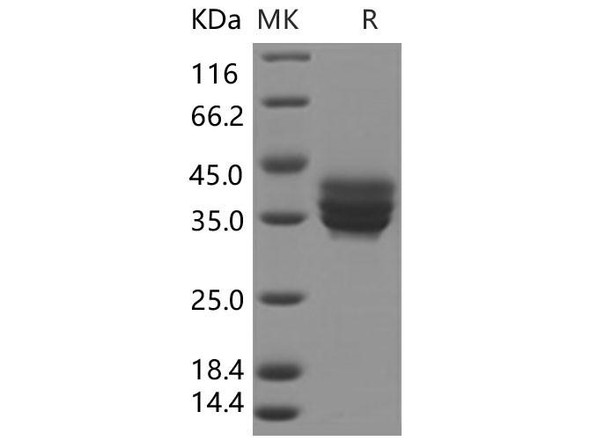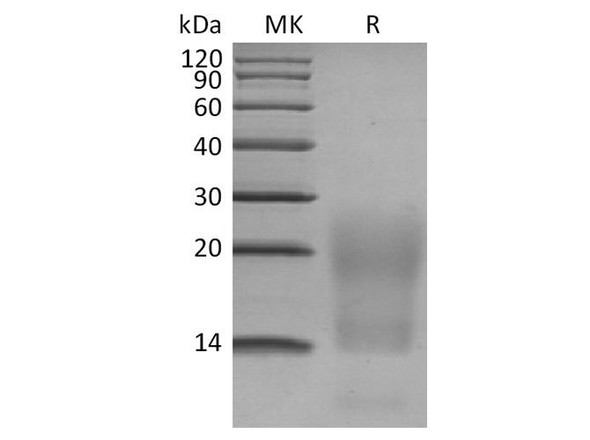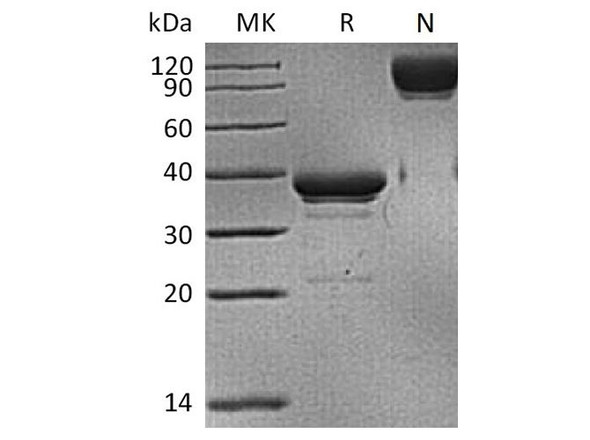Description
| Product Name: | Recombinant Human BCMA/TNFRSF17 (N-6His-Flag) |
| Product Code: | RPES6256 |
| Size: | 10µg |
| Species: | Human |
| Expression Host: | HEK293 Cells |
| Synonyms: | Tumor necrosis factor receptor superfamily member 17, B-cell maturation protein, CD269, Tnfrsf17, Bcm, Bcma |
| Mol Mass: | 7.7 kDa |
| AP Mol Mass: | 12&15-17 kDa |
| Tag: | N-6His-Flag |
| Purity: | > 95 % as determined by reducing SDS-PAGE. |
| Endotoxin Level: | < 1.0 EU per μg of the protein as determined by the LAL method. |
| Bio Activity: | Testing in progress |
| Sequence: | Met1-Ala54 |
| Accession: | Q02223 |
| Storage: | Generally, lyophilized proteins are stable for up to 12 months when stored at -20 to -80°C. Reconstituted protein solution can be stored at 4-8°C for 2-7 days. Aliquots of reconstituted samples are stable at < -20°C for 3 months. |
| Shipping: | This product is provided as lyophilized powder which is shipped with ice packs. |
| Formulation: | Lyophilized from a 0.2 μm filtered solution of PBS, pH 7.4. Normally 5 % - 8 % trehalose, mannitol and 0.01% Tween80 are added as protectants before lyophilization. Please refer to the specific buffer information in the printed manual. |
| Reconstitution: | Please refer to the printed manual for detailed information. |
| Background: | B cell maturation antigen (BCMA) is a member of the TNF receptor superfamily. It has been designated TNFRSF17. Mouse BCMA is a 185 amino acid (aa) protein consisting of a 49 aa extracellular domain, a 23 aa transmembrane domain, and a 113 aa intracellular domain. BCMA is a type III membrane protein containing one extracellular cysteine rich domain. Within the TNFRSF, it shares the highest homology with TACI. BCMA and TACI have both been shown to bind to APRIL and BAFF, members of the TNF ligand superfamily. BCMA expression has been found in immune organs and mature B cell lines. Although some expression has been observed at the cell surface, BCMA appears to be localized to the Golgi compartment. The binding of BCMA to APRIL or BAFF has been shown to stimulate IgM production in peripheral blood B cells and increase the survival of cultured B cells. This data suggests that BCMA may play an important role in B cell development,function and regulation. |






